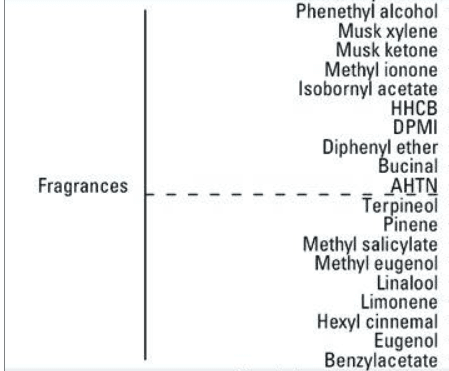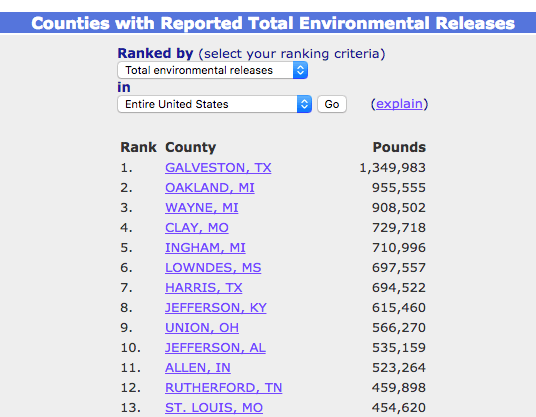Sensitivity to Smells? Fragrance Free Needed
Sensitivity to smells is a very common issue – and a serious one.
Fragrance free is what you need.
I went off today in a Facebook post about fragrances and my kids.
It doesn’t matter where you are – the smells and chemical fragrances are everywhere:
- walk down the street
- get in the car
- down the hall
- enter a bathroom
- into a store
- your kids
- your boss
- your coworker
- your neighbor’s dryer vent
The FIRST letter in my free bonus chapter to you is ‘A’ for ‘AVOID’
Avoid is step one because if you don’t avoid chemicals, it is more work for your genes to clean up.
If your genes are tired, lacking nutrients or blocked, these chemicals will make your genes dirtier.
Dirty Genes = symptoms.
Chemicals + Genes = Symptoms
I don’t care that everyone wears fragrances.
I don’t care that most companies have fragrances in their products.
I don’t care that most people think fragrances are just – well – fragrances.
Fragrances are CHEMICALS.
Period.
Look. (source)

Let’s look at just ONE of these chemicals, shall we?
- Inhalation: Move victim to fresh air. Apply artificial respiration if victim is not breathing. Administer oxygen if breathing is difficult. Inhalation or contact with vapors, substance, or decomposition products may cause severe injury or death.
- Handling: All chemicals should be considered hazardous. Avoid direct physical contact. Use appropriate, approved safety equipment. Untrained individuals should not handle this chemical or its container. Handling should occur in a chemical fume hood.
Let’s break down xylene a bit more – because this one is quite toxic and labs actually test for xylene exposure.
“Elimination of xylene is slower in individuals with a greater percentage of body fat. The primary effects of xylene exposure involve the nervous system by all routes of exposure, the respiratory tract by inhalation exposure.”
A bit more. . .
“At acute-duration inhalation concentrations as low as 50 ppm, xylenes produce irritant effects on the eyes, skin, and mucous membranes; impaired respiratory function; and mild central nervous system effects, including headache and dizziness. Increases in subjective reports of eye irritation, sore throat, and neurological effects (anxiety, forgetfulness, inability to concentrate, and a sensation of intoxication) were noted following chronic-duration occupational exposure at 14 ppm. Irritation of the eye may occur from contact with xylene vapor or from direct contact with xylene liquid, in which case photophobia, redness of the conjunctiva, and partial loss of the conjunctival and corneal epithelia have been reported. Slight-to-moderate eye irritation has also been observed in rabbits following direct instillation with ≥23 mg/kg mixed xylenes. With increasing airborne xylene concentrations of 100– 400 ppm, other neurological effects reported in acutely exposed human subjects include retardation of response times and impairments in memory and body balance. Acute exposure to an estimated 10,000 ppm xylenes elicited tremors, mental confusion, and depressant effects (narcosis) on the central nervous system that caused at least one fatality due to respiratory failure. All of these effects are related to the lipophilic properties of xylenes, which interfere with the integrity of cell membranes and alter neuronal function. In addition to neurological and respiratory effects, an increase in the reporting of nausea was noted following controlled exposure to m-xylene at 50 ppm. Symptoms of nausea and vomiting have also been noted in workers exposed to xylene vapors.”(source)
Test for xylene exposures as xylene is everywhere – including many jobs, offices, homes and more.
Your zipcode can be really high in xylene which may be one reason why you’re sensitive to smells.
Here are the top 13 cities in the nation with highest xylene releases – due to the gas industry most likely:

Being sensitive to smells is reasonable.
The question is how to get others to be reasonable that you are sensitive to smells?
How do you get your healthcare professional to help with this?
It’s not easy.
“A chart review of 2,922 histories taken by 137 third-year medical students showed that smoking status was documented in 91%, occupation in 70%, and specific occupational exposures in 8.4% of the total number of cases. Patients less than 40 years of age and women were significantly less likely than older patients or men to have their occupation and industry noted [Marshall et al. 2002; McCurdy et al. 1998].” (source)
The key tip that you need to know – and your healthcare professional:
“The single most important aspect of the approach to patients with potential occupational or environmental disease is to have a high index of suspicion and to follow through on that suspicion.” (source)
How to get your workplace environment with reduced fragrances or none at all
Talk with your employer that you are sensitive to smells and that it is affecting your work performance.
Provide this guide to your employer so they may review and take informed action on your behalf. (source)
According to the American Disability Act, fragrance-free is not necessarily required by law. Actions should be taken though to improve your surroundings, such as:
- informing coworkers to reduce the use of fragrances
- improve air circulation and filtration
- choosing new cleaning chemicals
- relocating printers or installing an exhaust system by them
- moving you away from areas of high smells and fragrances
- installing a window or positioning you by one
How to reduce sensitivity to smells
This is a complex topic and one that is an entire book in of itself.
The first step is to reduce exposure and avoid the most significant exposures.
I’ve detailed many exposures and provided resources in this article discussing how we’re so toxic from chemicals.
Here is a snap shot of common exposures:
- car exhaust
- smoking
- new construction
- remodeling materials
- gas stove
- gas ovens
- water filtration
- furniture choices
- cleaners, soaps, detergents
- personal care products
Yes, gas stoves and ovens are producing a ton of formaldehyde and chemicals. You need to get them out of your house.
Once you limit exposures to smells, now your genes can actually catch up and start reducing your toxic burden.
The best way to reduce body burden of chemicals is by sauna.
I’ve written an article on the benefits of sauna.
Which genes are associated with sensitivity to smells?
A number of them.
A big one is the GPX and GST pair of genes as they have to do with glutathione.
Watch the Facebook Live video discussing these two genes – GST and GPX.
Summary to reduce your sensitivity to smells:
- Avoidance!
- Education of your coworkers and family and friends
- Sauna and sweat in general
- Educate yourself in how to support your GST and GPX genes
- Watch the Dirty Genes Course in full and put it to use in your daily life.
- Supplement and clean your genes using liposomal glutathione – 1/2 tsp once to twice daily.
- Aldehydes are a huge issue with chemicals. Vitamin B1 (Thiamine) is very effective at clearing brain fog and feeling sluggish due to aldehydes. Consider 1 capsule morning and afternoon. Side effects from Thiamine are rare.
Share your experiences below!
Are you sensitive to smells?
How do you cope?
How did you recover?
 800-470-7401
800-470-7401


7 Comments
Are you sensitive to smells? >> I am now; started post-surgery.
How do you cope? >> Replaced personal care and cleaning products with fragrance-free. Purchased air filter and avoidance to the best of my ability.
How did you recover? >> Haven’t recovered, just finding Dr. Lynch information.
We built a low-tox, mold-resistant house, and it made a *HUGE* difference in my health!!!!
My enemy number 1 is fragrances. Perfumes, lotions, shampoos, laundry detergent, fabric softeners. Not all but the ones that get to me make my throat scratchy, my nose and sinuses get clogged and stuffy and if I can’t get away, I eventually get a headache. I avoid them as much as I can: leave the area, move to another seat, remove the bedding, or suffer. It gets better after a few hours away from the fragrance but the last time I was embarrassed to move and paid the price the next day still. It’s awful, it’s embarrassing, it’s inconvenient, and it’s very uncomfortable.
If I smell any chemicals, my blood vessels dilate straight away, my brains stop to function properly. Also, I have a strong and quick heartbeat and feel weakness and nervousness. My veins become very visible all over my body including my face and I feel pain in them. I’m only 18 years old. Why is there such a manifestation? If you know, please answer me.
Hi Nina –
It’s because these chemicals trigger a histamine reaction. High histamine contributes to all those symptoms. Consider supplements to support healthy histamine levels.
I don’t know how to cope. I have your book, and I’m doing literally everything I can. I’m strict, but no matter what I do, it’s just not enough. I’ve been working on this for over a year now. I’m at my wits end. Why am I not getting better?
Please know that we are not authorized to treat you or give you medical advice because we are not your treating healthcare professional. Remember that health is holistic. This means that in order to determine the root cause of your issues, you need to look at multiple avenues of health including lab markers, genetics, current conditions/symptoms, lifestyle, diet, and environmental toxins. To do this, your qualified healthcare professional will need to review your full medical history, order lab testing, and determine a protocol tailored for you. Though Dr. Lynch is a naturopathic doctor (ND), he is not your treating physician, and will not have all the information he needs to give you accurate advice – sometimes, a single issue will have underlying causes that can easily be overlooked via a simple, virtual comment or question. It is the responsibility of your qualified healthcare professional to answer your questions and assign a protocol for you. We understand that not all health professionals are trained in this area of biochemistry and nutrition, and it can be frustrating if you feel they don’t answer your questions or help you solve your problems. Because of this we now offer a Physicians Directory where you can find a health professional that is familiar with StrateGene®, nutrigenomics and some of Dr. Lynch’s work: https://seekinghealth.zendesk.com/hc/en-us/articles/360045834214-Dr-Ben-Lynch-and-Seeking-Health-Physician-Directory
Remember from Dr. Lynch’s book Dirty Genes, health is a four letter word: work. Part of this ‘work’ is finding a health professional that you feel is listening to you and helps you in the ways that you need. We are here to guide you by providing you resources in hopes that you will take the information and put in the work that optimizes your life.